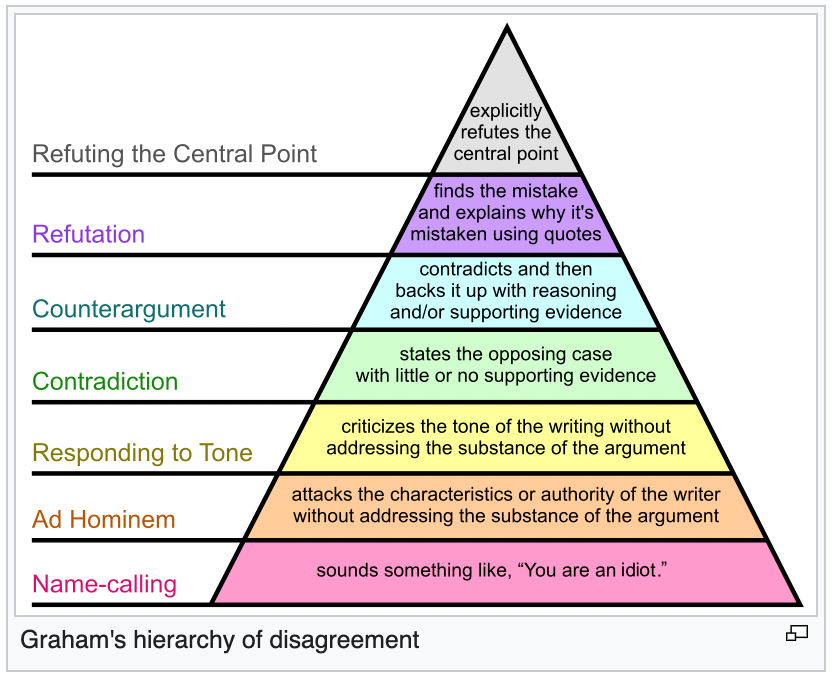On the art of disagreement
How we should aim to argue:
Donald Trump has a history of making false claims. For example, in a 2021 interview, he claimed that “there were no guns whatsoever” at the Capitol riot on Jan 6th, which is central to his assertion that the riots were not an armed insurrection. Court records have since proven that at least some of the 400+ people charged with crimes were carrying weapons. This is just one example, we can talk about others as well.
How we actually argue:
Donald Trump is a delusional, lying piece of shit.
No matter our political views, we all have the potential – and in many cases, the inclination – to resort to less sophisticated forms of argument and disagreement, especially when it comes to topics we feel strongly about.
Despite the advanced alien technology we carry in our pockets, we are still fundamentally just evolved apes. Our behavior is dictated by a combination of our primitive mind (limbic brain) and higher mind (prefrontal cortex). And the latter is not always in control. When we sense danger, the fight-or-flight response takes over, leading to poor decision-making, including in our ability to disagree well.
This is especially evident in the current social media ecosystem. Twitter, the de-factor public square of the internet, isn’t designed to encourage thoughtful conversations and our ape-like brains are still trying to figure out how to use the platform for good. It's not all bad, of course. I’ve witnessed many incredibly interesting corners of Twitter, especially those related to scientific progress and technological innovation. We just need to figure out how to make political Twitter more constructive and less polarizing.
One possible way to do this is to become more aware of and practice our disagreement skills. Paul Graham, a prominent investor in the startup world, wrote a great blog post about this in 2008, conveniently titled “How to Disagree.” You can read the full post here.

Instead of regurgitating the contents of the post, I’ll share a few of my thoughts related to it:
- The disagreement hierarchy, visualized as a pyramid of more to less common, is spot-on. Unfortunately, name-calling and ad hominem attacks seem to be all too common on political Twitter and other platforms. Refutations that require thought are often overlooked, partly because of the fast-paced nature of Twitter, but also because our negativity bias doesn't reward thoughtful responses.
- Some people are adept at using counterarguments to deflect or alter the original argument to something related yet distinct. This kind of deceptive argument may be the hardest to spot.
- Paul Graham suggests “the most obvious advantage of classifying the forms of disagreement is that it will help people to evaluate what they read.” I love the sentiment of this, but similar to what Daniel Kahneman says about cognitive biases, I worry that simply being aware of forms of disagreement doesn't necessarily make someone better at assessing them in dynamic, real-world scenarios.
- On a personal note, I feel particularly stupid about some of the verbal battles I got into on Facebook back in the day, mostly related to soccer. But I guess arguments between sports fans are relatively harmless, and perhaps even a good way to release our tribal tendencies for name-calling.
Finally, a question to ponder: if you were to redesign Twitter or create a new social platform built around meaningful discourse, what would you change or where would you start?